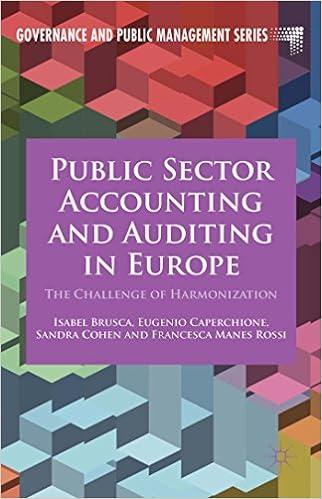Question
Adapted from Corporate finance Jonathan Berk, Peter DeMarzo, 3rd ed., Data Case Chapter 20 Your uncle owns 10,000 shares of Wal-Mart stock. He is concerned
Adapted from Corporate finance Jonathan Berk, Peter DeMarzo, 3rd ed., Data Case Chapter 20
Your uncle owns 10,000 shares of Wal-Mart stock. He is concerned about the short-term outlook for Wal-Marts stock due to an impending major announcement. This announcement has received much attention in the press, so he expects the stock price will change significantly in the next month, but is unsure whether it will be a profit or a loss. He hopes the price will increase, but he also does not want to suffer if the price were to fall in the short term. His broker recommended he buy a protective put on the stock, but your uncle has never traded options before and is not much of a risk taker. He wants you to devise a plan for him to capitalize if the announcement is positive but to still be protected if the news causes the price to drop. You realize that a protective put will protect him from the downside risk, but you think a straddle may offer similar downside protection, while increasing the upside potential. You decide to show him both strategies and the resulting profits and returns he could face from each.
1. Download option quotes on options that expire in approximately one month on Wal-Mart from the Chicago Board Options Exchange (www.cboe.com) into an Excel spreadsheet (click the Quotes & Data tab at the top left portion of the screen and then select Delayed Quotes). If you choose to download near term at-the-money options you will get a range of options expiring in about a month. Note: You can only get active quotes while the exchange is open; bid or ask prices are not available when it is closed.
2. Determine your uncles profit and return using the protective put.
a. Identify the expiring put with an exercise price closest to, but not below, the current stock price. Determine the investment required to protect all 10,000 shares.
b. Determine the put price at expiration for each stock price at $5 increments within a range of $40 of Wal-Marts current price using equation 1.
c. Compute the profit (or loss) on the put for each stock price used in part (b).
d. Compute the profit on the stock from the current price for each stock price used in part (b).
e. Compute his overall profit (or loss) of the protective put, that is, combining the put and his stock for each price used in parts (c) and (d).
f. Compute the overall return of the protective put.
3. Determine your uncles profit and return using the straddle.
a. Compute the investment your uncle would have to make to purchase the call and put with the same exercise price and expiration as the put option in Question 2, to cover all 10,000 of his shares.
b. Determine the value at expiration of the call and the put options at each $5 increment of stock prices within a range of $40 of Wal-Marts current price using equations 2 and 1.
c. Determine the profit (or loss) on the options at each stock price used in part (b).
d. Determine the profit (or loss) on the stock from the current price for each stock price used in part (b).
e. Compute his overall profit (or loss) of the stock plus straddle, that is, combining the position in both options and his stock for each price used in parts (c) and (d).
f. Compute the overall return of this position.
4. Was the broker correct that the protective put would prevent your uncle from losing if the announcement caused a large decrease in the stock value? What is your uncles maximum possible loss using the protective put?
5. What is the maximum possible loss your uncle could experience using the straddle?
6. Which strategy, the protective put or the straddle, provides the maximum upside potential for your uncle? Why does this occur?
data from cobe:
at t = 0 with near the money option

near the money option at approximately one month expiration

detailed data to take $5 increments at T = 0

continued table

detailed data to take $5 increment at time of expiration

continued table

Step by Step Solution
There are 3 Steps involved in it
Step: 1

Get Instant Access to Expert-Tailored Solutions
See step-by-step solutions with expert insights and AI powered tools for academic success
Step: 2

Step: 3

Ace Your Homework with AI
Get the answers you need in no time with our AI-driven, step-by-step assistance
Get Started


